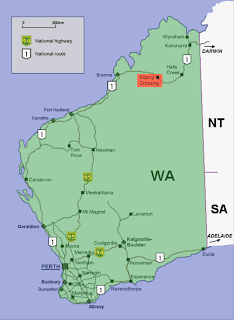United Nations Indigenous Fellowship Programme
http://www2.ohchr.org/english/issues/indigenous/fellowship.htm
*Deadlines to apply to the 2010 UN Indigenous Fellowship Programme*, per linguistic versions are:
- English: 30 April 2009
- Spanish: 15 July 2009
- French: to be confirmed
- Russian: 30 September 2009
UN Indigenous Fellowship ProgrammeThe Indigenous Fellowship Programme (IFP) was launched by the Office of the High Commissioner for Human Rights (OHCHR) in the context of the first International Decade of the World's Indigenous Peoples (1995/2004).
The aim of the programme is to give indigenous peoples the opportunity to gain knowledge on the UN system and mechanisms dealing with human rights in general and indigenous issues in particular so they can assist their organizations and communities in protecting and promoting the rights of their people. In its first decade, more than 100 indigenous men and women from 46 countries undertook the programme. They provided human rights training to many more in their communities.
The IFP is accessible in four different languages:
- English,
- French,
- Spanish, and
- Russian
The programme -in its four linguistic versions- is held annually. Each language version has developed slightly differently and generally runs from 2 to 4 months. The selected candidates are entitled to a return flight ticket, living expenses and health insurance.
*Who can apply?*1. The candidate must be *indigenous* (non-indigenous persons will not be taken into consideration, even if they have close links with indigenous communities and/or organizations).
2. Age should not be a limitation to participation in the programme, although preference should be given to candidates in the age-bracket 25-35 years.
3. Formal education should not be a limitation to participation in the IFP given the socio-economic barriers confronted by many indigenous peoples that limit access to formal educational institutions.
4. Candidates should agree to train other indigenous persons after the return to their respective communities/organizations.
5. The candidate should be proposed and his/her *candidacy supported by his/her indigenous organization and/or community*. It is desirable that the sponsoring organization has a firm constituency or membership and that it is representative.
6. The candidate should have a good working knowledge of the language, in which the programme is imparted.
*Selection process *The selection of fellows reflects a gender and a regional balance. The general human rights situation in the respective regions/countries is also taken into consideration.
A pre-selection of 15 (first five preferences and 10 alternates) candidates is made by previous indigenous fellows. The final selection of successful candidates is undertaken by an advisory group composed of indigenous persons.
*In view of the large number of applications, we regret to inform that only successful candidates will be contacted. *
*How to apply?*Fellowship applications will only be taken into consideration if they are fully completed. Both parts I and II must be *signed* and *faxed or sent by regular post* at the following address:
Indigenous Peoples and Minorities Unit
Office of the United Nations High Commissioner for Human Rights
UNOG-OHCHR
CH-1211 Geneva 10
Switzerland
Telefax number: (+41 22) 928 90 66
*E-mailed applications will not be taken into consideration, unless both parts I and II are signed and scanned*.
Application forms need to be accompanied by an *official recommendation letter* from the nominating *indigenous* organization or community.
Any questions pertaining to the Indigenous Fellowship Programme can be sent to the address mentioned above or E-mailed to: fellowship@ohchr.org
English speaking programme (sessions imparted in English):The English speaking component of the Indigenous Fellowship Programme began in 1997, as an initiative of the Office of the High Commissioner for Human Rights (OHCHR) developed in the context of the International Decade of the World's Indigenous People (1995-2004).
The English speaking component of the programme generally runs for four months from April/May to July/August. The Fellows are based at the Office of the United Nations High Commissioner for Human Rights (OHCHR) in Geneva, Switzerland. The programme is an inter-active process, which consists of briefings on several topics (i.e. OHCHR's work, the UN system and mechanisms) individual and group assignments. Fellows also have the opportunity to receive training sessions with other UN agencies, including ILO, WIPO, UNESCO and UNITAR.
At the end of the Programme, each Fellow should have a general knowledge on the United Nations system, international human rights instruments and mechanisms, in particular those relevant to indigenous peoples and be capable of giving training sessions within their communities/organizations on the knowledge acquired.
Fellows attending the English speaking component of the programme are entitled to the following: a return ticket (economy class) from the country of residence to Geneva; modest accommodation in Geneva for the duration of the Programme; basic health insurance for the duration of the Programme; a monthly grant to cover other living expenses in Geneva.
The candidates that have been selected for the 2009 English speaking programme are:
- Ms. Kuno Caroline Bena (Karimojong – Uganda )
- Ms. Margaret Raven (Onemulla, Yamatji – Australia )
- Ms. Eunice Santawan Lepariyo (Ilchamus - Kenya )
- Mr. Ronald Waromi (West Papua – Indonesia )
- Mr. Datu Cosme Lambayon (Matigsalug – Philippines )
The 2009 English programme will take place from 1 April until 17 July at the OHCHR in Geneva.
Please note that the deadline to apply to the 2010 English speaking Programme is: Thursday 30 April 2009.
•
Application formPlease note that the deadline to apply to the 2010 Spanish speaking Programme is: Wednesday 15 July 2009.
•
Application formPlease note that the deadline to apply to the 2010 Russian speaking Programme is: Wednesday 30 September 2009.
•
Application form
Use the Search Function at the Top to Find More Articles, Fellowships, Conferences, Indigenous Issues, Book Reviews, and Resources



